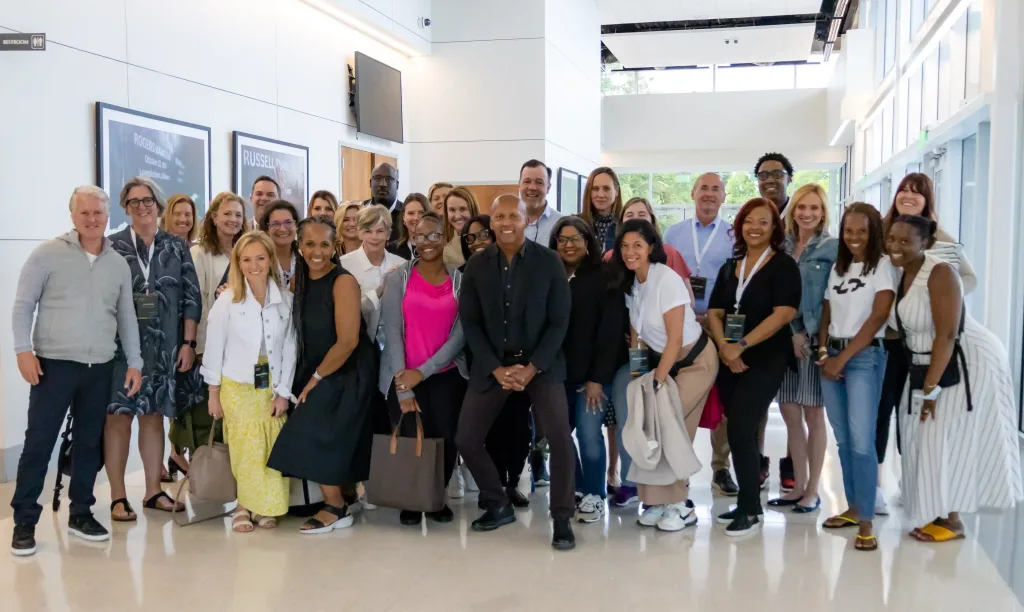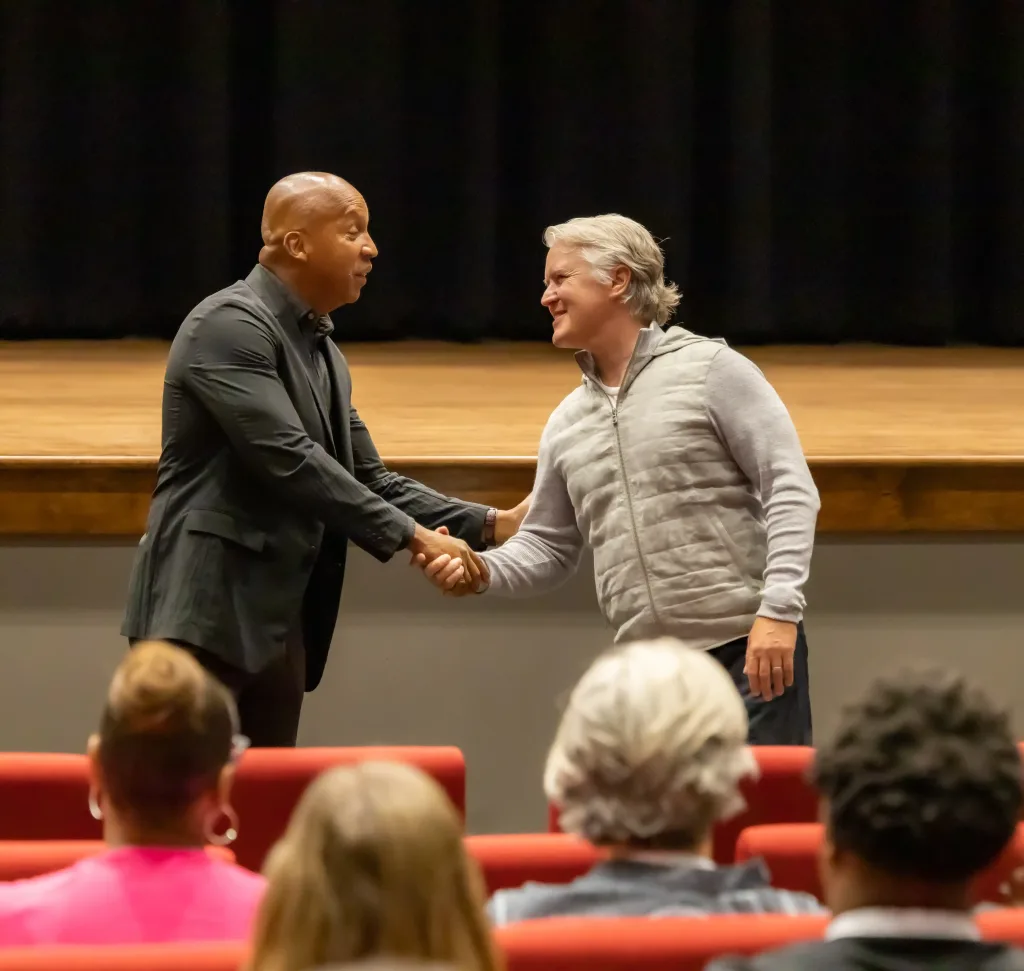Montgomery Equal Justice Institute Event Recap
Virtual learning, virtual care, virtual coaching, virtual everything has been booming the past few years as technology capabilities have matured and people have seen the value in opening up access and expanding new use cases for just about every industry. As an impact-as-a-service company that specializes in a number of ESG and CSR digital education content, we love seeing the adoption of virtualized and digitized experiences and content. However, there are still some experiences we feel the need to immerse in, experience shoulder-to-shoulder with peers and new connections alike and be on location together as collaborative group. In April, a handful of leaders from several globally recognized organizations came together in Montgomery, AL for a live experience called The Everfi Collective: Deepening our Understanding of Equity and Racial Injustice.
Everfi Collective participants with Bryan Stevenson, EJI, and the Radical Optimist Collective team. photo credit Simply Dave Photography.
The event was planned to provide a transformative experience that examines slavery’s modern legacy, reframes the way we understand history, and applies new learnings to help increase racial equity and inclusion. Furthermore, the goal was to examine our national history to better understand the truths that many of our friends, colleagues, and community members have faced, but may not have been given the empathy or space to be truly understood. In fact, one of the most moving parts of the experience was listening to Bryan Stevenson, renowned social justice lawyer and founder of the Equal Justice Initiative, talk about education and owning the past to pivot to a brighter future.
EJI Founder and Social Justice Thought Leader, Bryan Stevenson and Everfi CEO, Tom Davidson. photo credit Simply Dave Photography.
To frame the event for success, the program focused on three key components- 1) Strengthen leadership skills and equipping participants with the knowledge and compassion to lead organizations toward a more equitable and inclusive future. 2) Solidify commitments to change and make values-driven decisions. 3) Confront unconscious biases and gain a deeper understanding of participants thought patterns.
The day started in a community space in downtown Montgomery just blocks from the Legacy Museum and National Memorial for Peace and Justice. Each participant set intentions for the day that ranged from “Asking questions that may make me uncomfortable to expand my understanding” to “unlearning previous biased teachings” to “listening to people who share different experiences from me.” This emotional start was made productive by the facilitation of the Radical Optimist Organization that was able to take these intentions and turn them into strategies to mitigate bias.
As the event took people to the Legacy Museum, guided walks through the city of Montgomery where Rosa Parks’ famous bus ride took place, and MLK’s birthplace stand, the collective also learned of where slavery boomed in the buildings and streets around the path the team took through each historical marker. The event came to an apex on a hilltop overlooking the city where the Memorial for Peace and Justice stands. Each individual walked through the park seeing the statues, the learnings engraved on the walls, and reading the names of lynching victims inscribed on large metal sculptures in front, beside, and above as one walks through the memorial.
The National Memorial for Peace and Justice, photo credit Simply Dave Photography.
One of the highlights was the experience of meeting and hearing from Bryan Stevenson who is the founder and Executive Director of the Equal Justice Initiative, a human rights organization in Montgomery, Alabama. The takeaway from his talk was to face our past to form a brighter future. As he states in his nationally acclaimed book, Just Mercy, “There is a strength, a power even, in understanding brokenness, because embracing our brokenness creates a need and desire for mercy, and perhaps a corresponding need to show mercy. When you experience mercy, you learn things that are hard to learn otherwise. You see things you can’t otherwise see; you hear things you can’t otherwise hear. You begin to recognize the humanity that resides in each of us.” The event left each participant with the desire to learn- learn about others experience and show mercy, show empathy, and grow from the experiences and teachings of the event.


